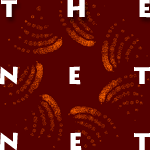Nicholas Negroponte's much-hailed Being Digital has spawned much adulatory
prose as well as a whole empire of sites and discussion groups and related
excrescences
around the web. But I found that the book, wrapped like sushi inside an
ObBlackCover,
is like a hologram: it looks real, but if you reach out to touch it your
hand goes right
through it.
Negroponte's whole book -- which mostly collects his ongoing back-page columns for
Wired -- has the comfortable sound of someone who's been preaching to the
converted for too long. He's confident and convincing when he talks about
what's good
and bad in computer interfaces and he's got enough contacts in big
business -- entertainment, hardware design, media -- to know his subject when
it comes to
the near future of data delivery. His writing is a smooth sell with some
amusing
anecdotes and occasional bits of wry self-deprecation, but very little but
handwaves to
address the problems of the world outside his high-end technocrat circle.
No wonder web geeks love him. They know that if Negroponte has the nifty
gadgets he
lusts after within five years, they'll have them at home within six. And, since
Negroponte is advising big business, it actually is likely that some parts
of the book will
be self-fulfilling prophecies. If the book tempts you, read it for that
aspect alone if you
haven't already grokked his point of view from his columns.
But as the pages archaically flipped, I wondered: where is the big picture,
where is the
prophecy? Primed for some large world-spanning vision of where the data
will be in
2020, I only felt a little spark of authentic excitement when he talks
about what the high-level geeks will be doing. And we already know perfectly well what the
affluent high-level geeks will be doing.
This is like the wonderful promise of the industrial revolution: more
efficiency! more
streamlining! more leisure! Of course, the footnote says that the benefits
will go to the
investors, and the question of the workers' fate will become more and more
marginalized, so that just to raise the issue will brand one as a pinko
and, very possibly,
a dangerous crackpot. So, what about the info-have-nots, from the computer
illiterates
to the text illiterates? Is this an empty question? Will benefits trickle
down from
Negroponte, from the likes of you and me (writing for the web, reading on
the web), to
the folks living in the cracker box below the tracks, not to mention the
wider world?
Who gets to live in the Gernsback continuum?
To raise this social issue isn't just a marginal concern: Negroponte makes
sweeping
statements about impending changes in data delivery, but he never even
glances at the
issue of the market, of the mass of people whose choices (or lack of
choice) dictate the
pace of change.
Instead of delivering a thousand television programs to
everybody, it may
be better to deliver one program to each person in one-thousandth of the real
time.
He wants entertainment and data all on personal demand, everything tailored
for the
individual by "intelligent agents," forgetting that, for most people there
is great comfort
and community in the media as they already exist: the shelves of books, the
local paper,
the office chat about the previous night's TV shows, the remote village
clustering
around their radio for news. Negroponte's wish is for devices which will
help a solitary,
independent, busy person -- him and people like him -- deal with the mass of
data. He
ignores the coldness of the vision: people are already at one step from the
bonds of oral
culture, and his wireless, rootless devices take them yet another step away
from it.
But more than a social critique this is an economic one. One issue is that
someone has
to buy the electronic book, newspaper-assembling or media-mediating box,
but another
is that someone has to produce or at least input the reams of information
they will
carry. Like the 500-channel universe of TV, the questions of who
will pay for the material and control it, what it will sell and what
political and social
viewpoint it will promote are left open.
Negroponte tosses out an unconvincing few remarks about ordinary folks producing
video for the net, but except for this his vision is corporate, and
politically and
aesthetically naive. The notion of putting everything that's been filmed or
videotaped
on line is a mind-boggling one until you consider there will be every
episode of Green
Acres and only two hours of Citizen Kane.
Negroponte's optimism about a wonderful future free of prejudice, full of
opportunity,
is not borne out by the current evidence of the net -- easy communication doesn't
automatically foster affection and tolerance, as a quick scan of any of the more
discursive newsgroups demonstrates. He tosses out a nonchalant line: "A
previously
missing common language emerges, allowing people to understand across
boundaries" -- hmm. That'd be English, now wouldn't it?
This kind of view is what hobbles the book's more utopian elements: although
Negroponte has worthwhile things to say, he gets caught up in a utopian dream in
which everyone will eventually be more like him: autonomous, anglophone and
affluent. Certainly he's been able to sell all or some of his vision to
people like him, and
as such he has been and will be influential. There will be bits in this book to
interest you, sitting at your box and reading this review on the
screen -- Negroponte
touches on plenty of stuff that affects or will affect net-people. But I
hope that you'll find
enough gaps in his reasoning to set you thinking critically as well.
=ER=



